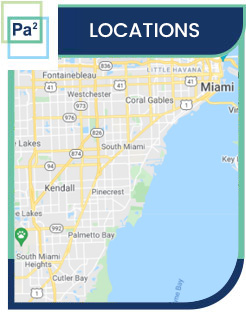Five Signs You May Have Skin Allergies
Skin allergies can affect people of all ages, with around 1 in 5 infants developing skin allergies and around 1 in 10 adults suffering from skin allergies. Many different potential allergens commonly cause skin allergies and a small range of skin conditions that develop as a reaction to the allergen. Learn the signs of skin allergies to get proper care before it gets worse. Board-certified allergist Dr. Carlos Piniella, MD at Piniella Asthma + Allergy provides comprehensive and specialized diagnosis and treatment for a wide range of skin allergies. For more information, contact us today or schedule an online appointment. We have convenient locations to serve all our patients in Coral Gables, FL and Palmetto Bay, FL.


Table of Contents:
What are the types of skin allergies?
What are the complications of skin allergies?
Can a skin allergy doctor tell from your skin condition what you are allergic to?
How is a skin allergy managed or treated?
The common types of skin allergies include eczema (also known as atopic dermatitis), hives (also known as urticaria), and contact dermatitis. Eczema affects around one-third of adults and one-fifth of children and can become inflamed after contact with an allergen. The symptoms of eczema include patches of red, dry, itchy skin that is very irritated and can ooze pus and develop fluid-filled bumps when becoming infected. Hives can be acute or chronic, with acute hives being a common response to exposure to an allergen. They will typically appear on the body as small red bumps or welts and can be classified as acute if they last for no longer than 6 weeks. Contact dermatitis includes a range of skin reactions when the skin comes into direct contact with an allergen or irritating substance. The common reactions and symptoms associated with contact dermatitis include blisters, itching, burning, or a rash. Some known irritants or allergens that lead to contact dermatitis include adhesives, topical medications, latex, plants, laundry detergents, soaps, fabric softeners, shampoos, and certain metals (nickel, other alloys, and stainless steel). Some people will find that they only develop symptoms of contact dermatitis if the skin has come into contact with the allergen and then is exposed to sunlight, also known as photoallergic contact dermatitis. This most frequently occurs when products such as shaving lotion, perfumes, or sunscreen have been applied to the skin that is then exposed to direct sunlight.
The complications that are associated with skin allergies typically include worsening allergic reactions, including increased redness, itchiness, swelling, burning, cracking of the skin, the development of blisters or bumps, patches of skin that are scaly, and wider-spread rashes. The rashes can even become infected, causing some bleeding or oozing a yellowish pus. Patients who develop hives can sometimes find that their hives start to spread further throughout their body as the allergic reaction worsens. Severe allergic reactions can develop life-threatening complications including trouble breathing, symptoms of asthma, anaphylaxis, and infections that spread in the lungs or ears.
While some certain allergens are more likely to cause skin conditions, such as topical products causing contact dermatitis, or food allergies that cause hives or rashes, it can be almost impossible to determine the exact cause of the reactions without a formal allergy test being completed. Several types of allergy tests can be done to specifically determine the allergens that are causing a skin condition in a patient, with skin prick tests typically being used for more environmental allergies, blood tests often being used for food allergies, and skin patch tests being effective in determining which specific allergens may be causing contact dermatitis. The patch test will not be able to determine the causes of other skin conditions caused by allergens such as a rash or hives but will be able to test for skin allergies to preservatives, medications, cosmetics, and hair dye.
Other than avoiding any identified allergens wherever possible, there are several different approaches to skin allergy management or treatment to ensure that the skin condition that develops or any associated symptoms are minimized. Some effective treatment options for when the allergen cannot be avoided include the application of steroid creams or ointments to soothe the resulting rash, and these topical products can often be available through a prescription from a healthcare provider. To manage allergy symptoms, patients will likely be recommended to take oral antihistamines before potential contact with an allergen to reduce the severity of the symptoms. Immunotherapy (allergy shots) is another effective option for many people suffering from allergies including skin allergies to help build up their tolerance to the allergen to reduce allergic reactions.
Skin allergy treatments are available at Piniella Asthma + Allergy. We serve patients from Coral Gables FL, Palmetto Bay FL, Westchester FL, Brownsville FL, Kendall FL, Pinecrest FL, Richmond West FL, Goulds FL, and the surrounding areas!

Additional Services You May Need
▸ Asthma
▸ Allergy Testing
▸ Food Allergies
▸ Immunotherapy
▸ Patch Testing
▸ Allergy Treatment
▸ Pediatric Asthma Specialist
▸ Pediatric Allergist
▸ Insect Bite Allergy
▸ Drug Allergy
▸ Seasonal Allergies
▸ Skin Allergy

Additional Services You May Need
▸ Asthma
▸ Allergy Testing
▸ Food Allergies
▸ Immunotherapy
▸ Patch Testing
▸ Allergy Treatment
▸ Pediatric Asthma Specialist
▸ Pediatric Allergist
▸ Insect Bite Allergy
▸ Drug Allergy
▸ Seasonal Allergies
▸ Skin Allergy


